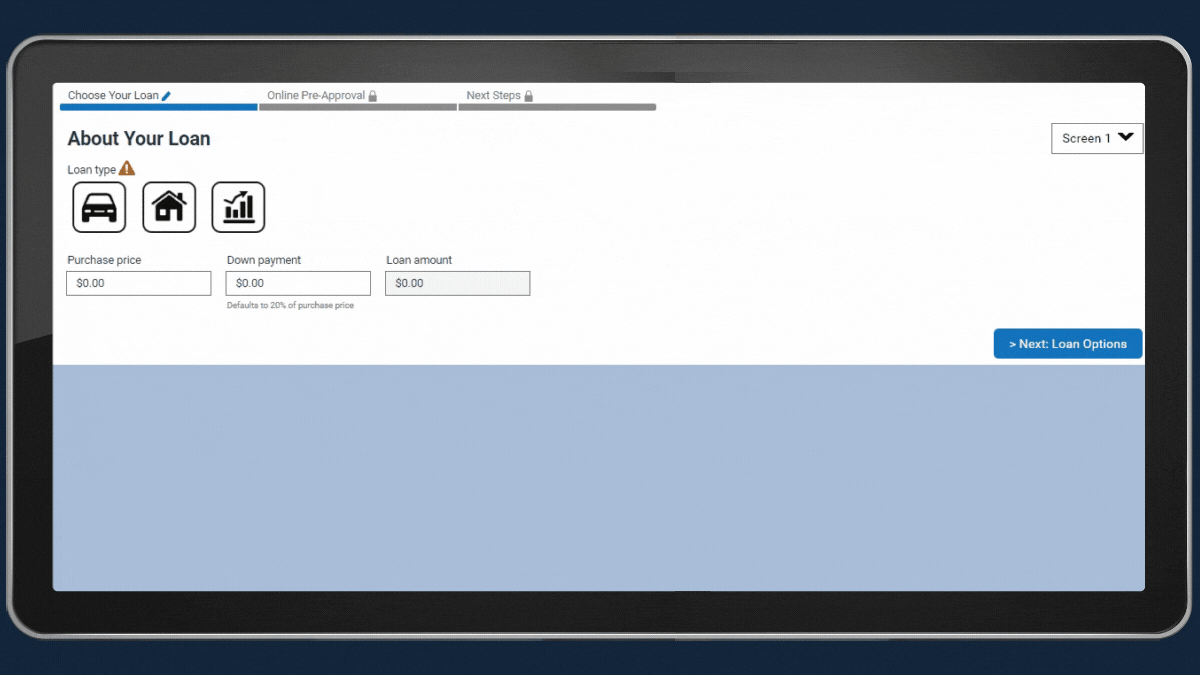Blog by Silvia Bujor
Oracle Intelligent Advisor and its Industry Use Cases
7 min read

Author: Silvia Bujor
7 min read
Oracle Intelligent Advisor (OIA), previously known as Oracle Policy Automation(OPA), is a powerful tool used by many businesses across the globe, including many of our own clients. Oracle Intelligent Advisor (OIA) is a specialised decision-making technology that interprets complex policy logic to support its decision making and calculations.
In contrast to other rules engines, Oracle Intelligent Advisor (OIA) can read its rules from documents written in natural language. OIA builds web-based interactive customer service experiences called Interviews based on the configuration and the rules defined when modelling the OIA form.
I’ve included a basic example of an Interview in the animation below:

OIA is a strong tool to use as part of the digital transformation of businesses. For instance, the digitisation of complex paper forms can be achieved through OIA Interviews that generate consistent results and speed up the processing time of applications by considerably reducing the risk for error associated with paper forms.
OIA can do a fantastic job on its own, however, when correctly integrated with other applications, such as B2C Service or Oracle CX Sales & B2B Service, Intelligent Advisor can considerably improve the customer experience, as well as save businesses a lot of time and cost.
Oracle Intelligent Advisor provides a lot of integration capabilities, including several connectors (pre-built integrations) that are ready to be used.
The most commonly used ones are the Oracle B2C Service and Oracle B2B Sales and Service connectors. By using these connectors, OIA Interviews can be placed on customer-facing user interfaces for self-service (for example on the Customer Portal within Oracle B2C Service) or on customer service agent user interfaces (for example on the CX Sales and B2B Service interface).
OIA can also be integrated with Oracle Digital Assistant. In this scenario, Digital Assistant is essentially acting as the user interface for OIA - thus each form field that would normally be rendered in an OIA interview is instead displayed as a question in the Digital Assistant's chat, with all relevant logic applied.
There is also a connector to Oracle Integration (part of Oracle Integration Cloud) and by utilising it in this way, you can integrate OIA with almost any system that the business is already using.
These connectors make this tool easy to integrate with multiple systems to accelerate business processes.
OIA offers agility for business users to drive consistent interactions across all channels. Intelligent Advisor provides dynamic Interviews for self-service, call centres and mobile apps.
Well defined rules within the OIA Interviews ensure that different users in the same situation or circumstances receive the same answers or outcomes, based on a common rule platform for multi-channel service delivery.
Thus, regardless of whether you are a customer completing an OIA Interview on a self-service portal, or on a call with a customer service agent in a contact centre, the advice and decisions you receive will be the same.
Finally, the recently introduced Web Authored Decision Services feature (version 21B) allows for developers to define modular rules within the OIA Hub itself which can then be referenced in as many Interviews as needed, hence maintaining consistency.
Where Intelligent Advisor is integrated with another application, data can be dynamically loaded from that application and easily re-used without asking the customers to enter it.
For instance, if at the start of an Interview OIA loads customer data from Oracle B2C Service which includes the customer’s date of birth, their age can be determined and used inside the rules without the need for the OIA Interview to ask the user how old they are.
In addition, OIA Interviews can save data collected (and decisions) back into the application with which it is integrated when they complete.
Finally, Interview checkpoints allow users to resume Interviews that were interrupted without losing the data that was already collected – a much-improved customer experience versus a typical web form.
Oracle Intelligent Advisor delivers dynamic personalised service to each customer while maintaining the consistency of the decision-making process. OIA allows for the Interviews to be tailored to the type of user that is currently running it by generating a path through the Interview for each user based on the rules defined in combination with pre-loaded data and the information the user provides on each screen.
For instance, if a user wants to apply for a car loan and another user wants to apply for a house loan, and both of them fill in the same OIA interview, the questions asked/input collected will be tailored to the type of loan each user wants to request.
Businesses can use OIA on websites to offer interactive and tailored advice to customers. For example, a customer can use an OIA Interview on a self-service portal to generate a quote for themselves for a specific product or service, based on the input that they provide.
Other use cases, such as guiding the customer through tailored troubleshooting steps for a purchased product, or to the ideal product or service for them based on their inputs, are similarly well-supported by OIA.
This can significantly reduce, maybe even eliminate, the time a customer traditionally spends to receive an answer to a complex enquiry.
By utilising OIA client-facing Interviews the end-user experience can be considerably improved. However, this does not mean that businesses cannot make good use of OIA internally as well.
Using OIA internally within contact centres can significantly reduce the time an agent requires to make a decision or reach a conclusion by providing them with guidance to the appropriate path, recommendations, calculations or complex determinations.
It becomes incredibly useful when businesses need to adhere to complex regulations or company policies as OIA can enforce upfront compliance through rules and data validation before any errors are made. In addition, in such industries, the cost of onboarding new customer service agents can be heavily reduced through having OIA on hand to provide support.
OIA offers the option to explain the logic behind decisions that have been made, which is highly important for many domains and industries where it is valuable to show customers and agents how a decision was reached and why. In the example below, OIA displays the reasoning behind determining the minimum eligibility requirements for a loan.
This helps minimise the queries and questions that customers could have regarding the outcome or results that they receive.
It is a lot faster to update and deploy OIA Interviews that are formed of out-of-the-box components than it would be for any other custom code-built tool used for determinations and decision making.
The rules can be configured, maintained, and updated without the need of advanced programming as they use natural language. This offers the option to have the business side more involved in working with OIA configuration and testing.
The example below shows two OIA rules written in natural language:
OIA also offers options to easily add (or remove) screens to an Interview, add new inputs that need to be collected, update the built-in styling of the Interview, update logic used by rules, etc. This is extremely beneficial for business domains that do not utilise static logic for the determinations and where the rules (or related values) need to be changed regularly.
While OIA has many great out-of-the-box features that can be used when configuring Interviews, it also allows for JavaScript extensions to be added to Interviews to enhance OIA capabilities to meet business needs and improve the customer experience.
Introduced in 2017, OIA JavaScript extensions offer the option to create and apply corporate styles and modern interactions for users, without there being conflicts with, or dependencies on, existing Intelligent Advisor control styles.
Interview extensions can also be used to validate and extend data interactions during an interview, such as incorporating third-party validation, or other services into advice experiences.
As detailed in the points above, Oracle Intelligent Advisor is a very powerful tool, and it can be an excellent fit for a vast range of businesses. It is designed to deliver consistent and auditable advice across channels and business processes, and it does this by using rules defined in natural language and building dynamic interactive Interviews for end-users based on diverse business requirements and complex policy documents.
We’ve seen Intelligent Advisor being used in multiple use cases and it hasn’t failed to deliver. It has definitely proved itself to be a very beneficial addition for businesses to provide a superior customer experience, particularly through guided advice and consistent decision making and reduce long term costs at the same time.
Explore Oracle Intelligent Advisor
Read our latest eBook to learn how you can level up your service experience, and generates value for customers, agents and business ops teams.
Read Intelligent Service eBook
7 min read
In the age of heightened CX, OPA is quickly becoming a new industry standard....
6 min read
The November 2016 OPA release has opened up new doors to enhanced user experience...
7 min read